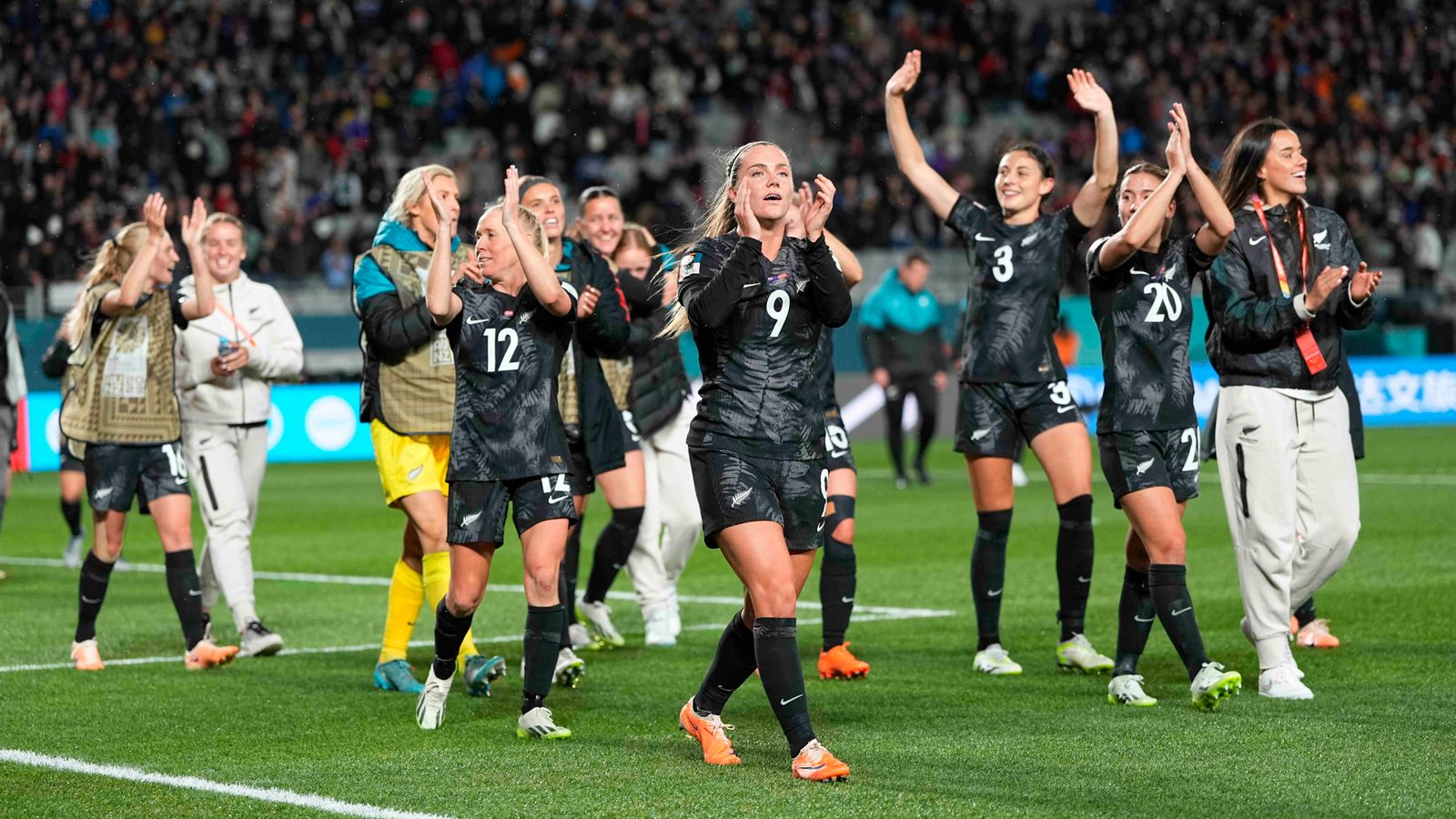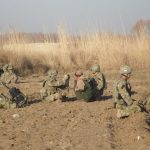New Zealand has kicked off the Women’s World Cup by beating Norway in a match played in front of beefed-up security following a shooting incident that left three people dead.
Hannah Wilkinson’s second-half goal gave New Zealand a shock 1-0 win over the 1995 champions in Auckland, while co-hosts Australia beat Ireland by the same score in Sydney.
Extra police and security staff had been drafted into Eden Park in Auckland ahead of kick-off after a man killed two people after opening fire at a construction site near where the Norwegian squad, as well as reigning champions, USA, are staying in the city.
The man was himself killed during the incident and six others were injured, police said.
A Haka war dance was one of the highlights of the opening ceremony in Auckland, which celebrated traditional Maori culture, in front of a crowd of 42,137, a record for a football international in New Zealand.
Australia began their campaign in front of more than 75,000 fans at Stadium Australia in Sydney.
A minute’s silence was held before the first two matches and flags flew at half-mast at the Eden Park stadium following the shooting incident.
Dingo euthanised after jogger mauled on beach
Australia’s Victoria state pulls out of hosting 2026 Commonwealth Games
Police look for clues after mystery object washes up on beach in Australia
Tens of thousands of football fans and dedicated diehards poured into Stadium Australia in Sydney for the first Women’s World Cup game in the country.
The attendance of 75,000-plus reflected demand so great organisers had to change venues.
Australians have embraced the competition and are excited to welcome foreigners back to the country after its closed border policy during the COVID-19 pandemic.
Outside the stadium, you could hear the crowd cheering as the co-hosts took on Ireland.
The Irish are making their World Cup debut and while Australians have a soft spot for the people of the Emerald Isle, the competition is fierce.
Naturally the Irish were outnumbered by Australia fans, but it didn’t dampen their spirits.
Supporters said they were there to support the girls in green and have a party, whatever the final result.
Lorna Conlen and her two young Australian-Irish sons were there, all decked out in green.
She said: “It’s really exciting for all of us, especially after a couple of years of lockdown in Australia, particularly to have our women’s team here. It’s such a huge achievement for them.”
Australia’s national team, the Matildas, also enjoys a strong and loyal following and the number of women and girls taking up football is growing fast.
The football world is expecting this global competition to be a watershed moment for the sport.
The build-up to the tournament has been dogged by disputes over match fees and bonuses affecting some of the leading teams, including England and Spain.
A video criticising the “disrespect” for the women’s game that forced teams to play on artificial pitches in the 2015 finals and prize money that still lags behind the men’s World Cup was released by the Australia team, also known as The Matildas.
On the eve of the tournament, FIFA President, Gianni Infantino, said progress was being made, pointing to a ten-fold increase in tournament prize money under his watch to $150m (£116m), with $110m (£85m) going to the players.
Those calling for equal pay with men’s football can point to the popularity of the Matildas, as tickets for their matches sold out months in advance.
Read more:
Women’s World Cup will embolden footballers to fight for the pay they deserve
Australian Prime Minister Anthony Albanese said: “I think that Australians are really realising just how big this event is.”
There are still tickets available for New Zealand’s ties as demand has been lower in a country where rugby and the All Blacks dominate the sports landscape.
Urging fans to get in quick, New Zealand Sports Minister Grant Robertson called it a “once-in-a-lifetime opportunity … to experience a world cup”.






















